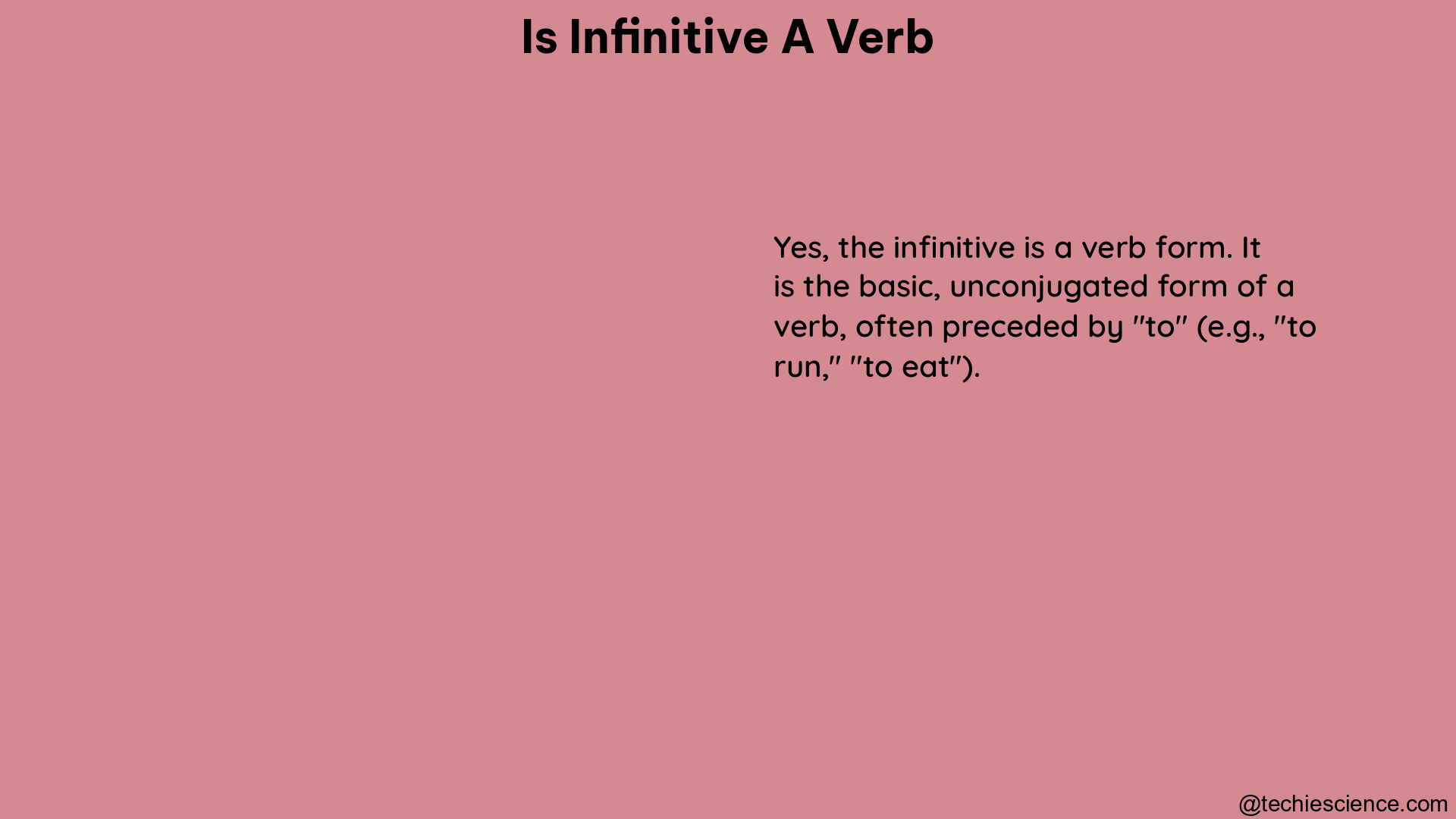The question of whether an infinitive is a verb is a common point of discussion in English grammar. Although infinitives are formed from verbs and contain verbs, they do not function as verbs in a sentence. Instead, they can act as nouns, adjectives, or adverbs, depending on their context and usage.
Formation of Infinitives
Infinitives are formed by placing the word “to” in front of the base form of a verb. This is known as the “to-infinitive” form. For example:
- To run
- To write
- To study
The base form of the verb is the form that appears in the dictionary, without any additional endings or modifications.
Functions of Infinitives

Infinitives can serve various grammatical functions in a sentence, including:
Nouns
Infinitives can function as nouns, acting as the subject, direct object, or subject complement of a sentence. For example:
- Subject: To learn a new language is challenging.
- Direct Object: I want to learn a new language.
- Subject Complement: My goal is to learn a new language.
Adjectives
Infinitives can also act as adjectives, providing additional information about a noun. In this case, the infinitive phrase modifies the noun. For example:
- This is a book to read.
- She has a desire to succeed.
- The opportunity to travel is exciting.
Adverbs
Infinitives can function as adverbs, modifying a verb and indicating purpose or reason. For example:
- I came to college to learn.
- She studied hard to pass the exam.
- They volunteered to help the community.
Bare Infinitives
In some cases, the word “to” is dropped when an infinitive is used with certain verbs, such as modal verbs (e.g., can, could, may, might, must, shall, should, will, and would). These are known as “bare infinitives.” For example:
- She can swim.
- They should go.
- I will try.
Split Infinitives
A split infinitive occurs when additional words are included between “to” and the verb in an infinitive. This is generally acceptable in informal writing but should be avoided in formal contexts. For example:
- Correct: To quickly run.
- Split Infinitive: To really quickly run.
Distinguishing Infinitives from Gerunds
It’s important to note that infinitives are different from gerunds, which are verb forms that end in “-ing” and function as nouns. For example:
- Infinitive: To run is my favorite exercise.
- Gerund: Running is my favorite exercise.
While both infinitives and gerunds are derived from verbs, they serve different grammatical roles in a sentence.
Conclusion
In summary, although infinitives are derived from verbs and contain verbs, they do not function as verbs in a sentence. Instead, they can act as nouns, adjectives, or adverbs, depending on their context and usage. Understanding the various functions of infinitives is crucial for effective and grammatically correct communication in English.
References:
- Are Infinitives Really Verbs? – VOA Learning English
- Infinitives [pdf] – San Jose State University
- Infinitives – Purdue OWL
- What Is an Infinitive Verb? – YourDictionary

Hi, My name is Ammu Shaji. I hail from Kerala. I hold a post-graduate degree in English Language and Literature. I am an Academic writer by passion and profession.